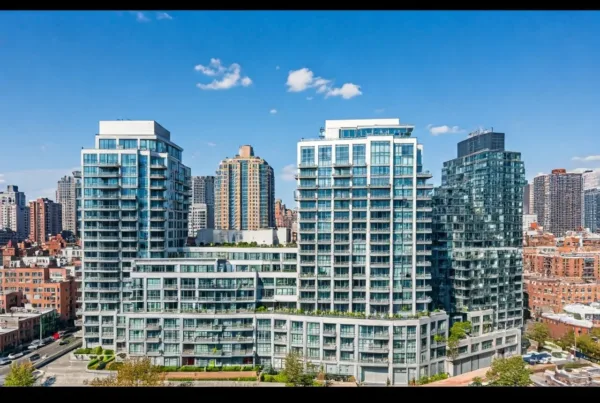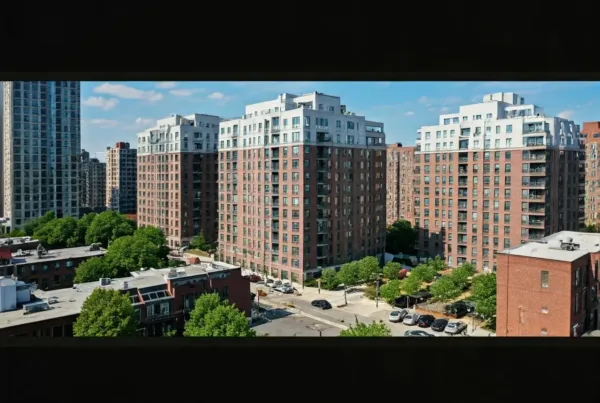Navigating the world of sponsor units in New York City’s real estate market can be both exciting and daunting. Whether you’re a first-time buyer or a seasoned investor, understanding the nuances of these unique opportunities is key to making informed decisions. In this guide, we’ll explore essential tips and tricks to help you make the most of sponsor units in the city that never sleeps.
1. Understanding the Concept of Sponsor Units
Sponsor units can often be an enigma to many buyers. Understanding the fundamental concept and origin of these units is crucial before diving into the market.
To unravel the complexities of sponsor units, it’s essential to know that these are apartments within cooperative or condominium buildings that the original developer, or sponsor, still owns. Unlike standard co-op units, these do not require approval from the building’s board, which can be a significant advantage for buyers. Understanding the nuances of these units can offer unique advantages and aid in identifying the right opportunities in the competitive NYC market.
If you’re new to the world of NYC real estate, the term “sponsor unit” might be a bit perplexing. Simply put, a sponsor unit is a property in a cooperative building that is owned by the original developer or sponsor of the building. These units are typically held by the sponsor for the purpose of selling them to individual buyers. Unlike traditional coop units, sponsor units often come with certain perks, such as lower prices, quicker closing times, and more flexibility for customization. To further delve into understanding these unique properties, check out this in-depth guide on understanding sponsor units in NYC.
2. The Benefits and Drawbacks of Sponsor Units
Every real estate opportunity comes with its pros and cons. Knowing the benefits and drawbacks of sponsor units can help you weigh your options carefully.
When considering a sponsor unit, one of the main attractions is the price point. These units often come at a lower cost because buyers can skip the co-op board approval process. This is appealing for those looking to secure a quick purchase without the bureaucratic hurdles. However, it’s important to balance this benefit against potential downsides such as the condition of the unit, which might require significant renovations.
3. Researching the Market
Conducting thorough market research can provide insights into finding the best sponsor units and identifying key trends facilitating your purchase.
The first step in market research is understanding current real estate trends in your targeted area. Keeping an eye on market dynamics can provide insights into whether sponsor units are being offered at fair prices or inflated values. Utilizing tools and resources like the Real Estate Rebates NY Blog, which provides insider tips and market insights, can be a valuable strategy for staying informed.
4. Navigating Financial Considerations
Understanding the financial implications, including fees and potential financing options, is vital to planning your budget effectively.
For many, one appealing aspect of sponsor units is their flexibility in down payment requirements, significantly less rigorous than standard co-op demands. However, buyers also need to consider tangible financial obligations, such as closing costs. Sponsor units often incur higher initial fees, which should be a key part of your budgeting considerations. Navigating these financial waters requires a comprehensive approach, assessing your own financial position to ensure a seamless purchase process.
5. Securing the Right Real Estate Agent
Working with an experienced agent who specializes in sponsor units can streamline your buying process and provide valuable expertise.
The importance of having a seasoned real estate professional by your side cannot be overstated. A knowledgeable agent familiar with sponsor units not only helps locate available properties but also simplifies the complex transaction process. They can provide insights into current market trends, price negotiations, and legal aspects of purchasing sponsor units, which can be invaluable in securing the perfect deal.
6. The Importance of Location
Location is everything, especially in New York real estate. Learn how to choose a neighborhood or building that aligns with your lifestyle and investment goals.
Understanding the location of your sponsor unit is crucial, not only to your lifestyle but also to your property’s investment potential. Consider the proximity to essential amenities, schools, public transport, and potential for future development. Choosing the right location ensures you’re positioned for both comfort and profit, as properties in desirable areas often yield higher appreciation over time.
7. Evaluating the Unit’s Condition
Sponsor units may require some repair or renovation. Knowing how to assess the condition of a unit will help you avoid unexpected expenses.
A detailed assessment of the unit’s physical condition is essential. Many sponsor units, especially those with long-term tenancies, can be in a state requiring substantial upgrades. Be prepared for the possibility of encountering ‘estate condition’ units, which may necessitate complete overhauls. Evaluate the cost implications thoroughly to prevent unforeseen financial burdens later.
8. The Role of Building Amenities
Amenities can enhance your living experience or appeal to future tenants. Discover which features offer the best value in a sponsor unit.
In highly competitive markets like New York City, building amenities can significantly sway purchasing decisions. Consider amenities such as fitness centers, concierge services, or outdoor spaces, as they add substantial value to the property. These features can enhance personal comfort or attract high-quality tenants if you’re buying for investment purposes.
9. Understanding Legal Aspects
Legal requirements and documentation can be complex. Familiarize yourself with the paperwork involved in acquiring sponsor units.
Sponsor units entail unique legal considerations, particularly concerning the Right of First Refusal and potential resale restrictions. Thoroughly examining important documents, such as the offering plan and legal history of the unit, is crucial to avoid future legal pitfalls.
10. Negotiation Strategies
Effective negotiation tactics can secure a better deal. Understand the art of negotiation in the sponsor unit landscape.
Negotiation can notably influence your purchase terms when dealing with sponsor units. These units may be priced higher due to their unique bypass of standard approval processes, so developing a strong negotiation strategy with the help of a real estate agent can be pivotal. Be prepared to discuss not only the sale price but additional factors such as repairs, renovations, and closing costs.
11. Work with the Real Estate Rebate Team
Real Estate Rebates Team is a top real estate brokerage firm in NYC and NJ, dedicated to delivering exceptional service and significant savings. Offering up to a 2.5% commission rebate at closing, we pass these savings directly to clients buying or selling homes. Through education and a transparent rebate system, we empower clients to maximize their benefits, with numerous success stories proving our approach. Our online platform allows you to easily calculate potential rebates and find properties that suit your needs. We negotiate the best prices and secure additional incentives at closing, ensuring you get money back whether selling, renting, or buying a condo, co-op, or townhouse. For new developments, we offer even higher rebates on larger commissions. Real Estate Rebates Team helps clients enjoy greater savings and better returns on their real estate transactions.






